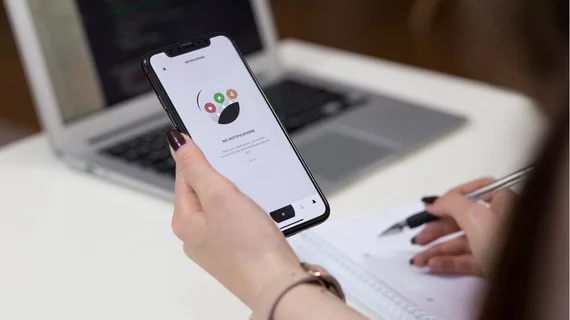Algorithmic model almost 80% accurate at diagnosing COVID in app users
Researchers in the U.K. and U.S. have developed an automatic prediction model that can tell if someone is infected with COVID-19 based on symptoms alone.
Tim Spector, MD, of King’s College London and colleagues trained their algorithmic predictor on data gleaned from the COVID Symptom Study led by Spector and Andrew Chan, MD, MPH, of Massachusetts General Hospital.
A key part of the symptom study is an app that’s now fed by more than 3.3 million people around the world. Users report daily on their health status and log in any new symptoms associated with COVID-19 if or when they appear.
In the present study, “Real-time tracking of self-reported symptoms to predict potential COVID-19,” published online in Nature Medicine May 11, the team analyzed data self-reported by almost 2.5 million users of the app.
Around a third of the massive cohort had logged symptoms like persistent cough, fever, fatigue and loss of taste or smell (anosmia). Of these 2.5 million, more than 18,300 said they’d had a COVID test and more than 7,100 said it had come back positive.
Spector and colleagues next connected the dots between symptoms—individually or combination of two or more—and positive test results.
From these findings the researchers created and tested a predictive model with AI components. They found the model’s accuracy came close to reaching 80% accuracy at separating COVID-positive from COVID-negative individuals based on their age, sex and a combination of four key symptoms: anosmia, severe or persistent cough, fatigue and skipping meals.
Further, when the team applied the model to more than 800,000 app users experiencing symptoms, they found 17.42% of people in this cohort were likely to have COVID-19.
In study coverage posted by King’s College London, Spector says loss of taste or smell is, going by the study’s big-data results, “a key early warning sign of COVID-19 infection and should be included in routine screening” for the disease.
“We strongly urge governments and health authorities everywhere to make this information more widely known,” he adds, “and advise anyone experiencing sudden loss of smell or taste to assume that they are infected and follow local self-isolation guidelines.”

